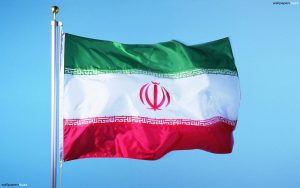| With the recent announcement that Huawei equipment is to be removed from the UK’s 5G networks by 2027, questions have been asked over just how much of a threat the Chinese telecoms giant really poses to the integrity of UK cyber-security.
The ban indicated a U-turn by Boris Johnson’s govt., which commented in Jan. that Huawei would be allowed to play a “limited role” in the UK”s 5G infrastructure. 5G equipment Oliver Dowden, UK Culture Secretary, said that no new Huawei 5G equipment can be bought after Dec. 31, 2020, but older 2G, 3G, & 4G can remain until no longer needed. In a statement, a spokesperson for Huawei UK said that this “disappointing decision is bad news for anyone in the UK with a mobile phone. It threatens to move Britain into the digital slow lane, push up bills & deepen the digital divide. Instead of “levelling up” the government is levelling down & we urge them to reconsider. We remain confident that the new US restrictions would not have affected the resilience or security of the products we supply to the UK.” US trade policy “Regrettably, our future in the UK has become politicised, this is about US trade policy & not security. Over the past 20 years, Huawei has focused on building a better-connected UK. As a responsible business, we will continue to support our customers as we have always done,” the spokesperson explained. Recently, there have been many attempts to exclude Huawei from Western nations, in response the Chinese UK Ambassador, Liu Xiaoming, warned that any ban would damage trust in the UK & its reputation as “a business-friendly, open, transparent environment”. What threats? Currently, most of the alleged threats to security seem to be based on ‘supposition & hearsay’. Former Google CEO Eric Schmidt told the BBC here was “no question that Huawei has engaged in some practices that are not acceptable in national security”. He also said that there is “no question that information from Huawei routers has ultimately ended up in hands that would appear to be the state”. Huawei, though, has always refuted accusations that it is part of the Chinese state. Vince Warrington, CEO of Protective Intelligence & Dark Intelligence, further observed that the threat is “in no way overstated”. Symbiosis “What many in the West fail to realise is the symbiosis between the Chinese government and large Chinese companies. In the West, we are used to having politics separate from business to a very large degree, but that is not the case in China,” he concluded. He added that while Huawei probably would not consider itself to be state-owned, it will have a ‘political department’ inside the company that ensures it is aligned to the Party. This, he revealed, is “normal practice in China, & makes it impossible to separate the company from the Party”. “CISO’s need to bear in mind that it’s businesses, not govt. agencies, that are exposed to the most sophisticated Chinese hacking techniques, such as using the dark-net to mask their activities & they’re also less well prepared to defend,” he observed. Concerns Mike O’Malley, VP of Carrier Strategy & Business Development for Radware, explained that despite Huawei’s executives making numerous statements saying there are no back doors to their equipment, many concerns continue. “Two Chinese laws – the 2017 National Intelligence Law & the 2014 Counter-Espionage Law remain very problematic for Huawei. Article 22 Some of the most worrying language includes Article 22 which reveals “When the state security organ investigates & understands the situation of espionage & collects relevant evidence, the relevant organisations & individuals shall provide it truthfully and may not refuse”,” he further explained. “Legal experts have interpreted this as a legal basis upon which the Chinese government could compel any Chinese company including Huawei to share any & all customer data from equipment, deployed both inside China & throughout the rest of the world,” O’Malley added. What’s next? With a ban coming, Lord Browne has announced he will step-down as UK Chairman in 2 months’ time; he had been due to leave the company Mar. 2021. BT has warned that it would be extremely difficult to remove Huawei equipment in the next 10 years. Upgrades BT’s CEO Philip Jensen told BBC Radio 4’s Today programme that if the company was “not able to buy or transact with Huawei that would mean you wouldn’t be able to get software upgrades”, meaning that security could be put at risk. Regardless of whether the allegations surrounding Huawei are true, the ban will have a negative effect on the economic & political relations between the UK & China & could put the UK years behind its 5G rollout. |










